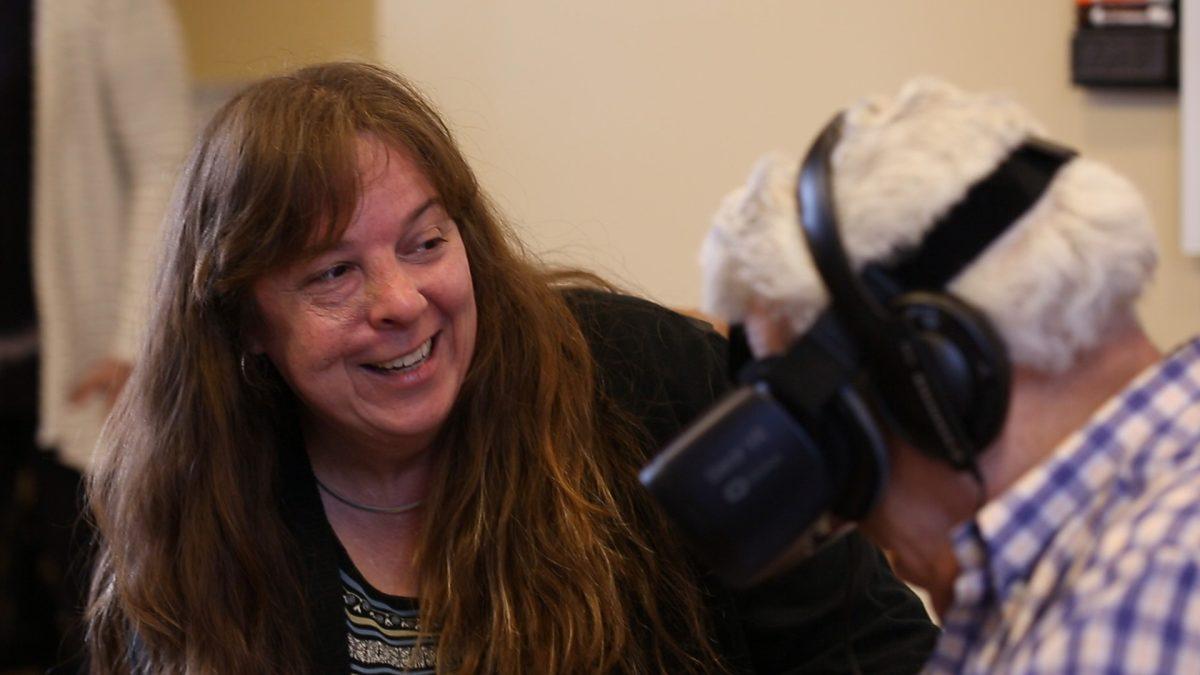Older generations can benefit from virtual reality technology — a fact that Dallas-based startup MyndVR is using to its advantage.
CEO Chris Brickler and co-founder Shawn Wiora teamed up with assistant professor of computer science Ryan McMahan and his students to adapt VR to the elderly. Brickler said this population is sometimes ignored with modern technological ventures.
Earlier this year, the company conducted trials with over 300 seniors aged 60 to 100 years old in Florida, Kansas, California and Texas. Brickler said these trials have shown promising results in terms of overall patient happiness when using the technology, but the company is still in the early stages, at less than a year old.
“Virtual reality isn’t just for gamers anymore,” Brickler said. “We can actually make this technology for people that have the time and need for it. Not just to play a game, but to feel better, to visit with nature and to be immersed in environments they haven’t been part of for years.”
Roger Rian participated in a MyndVR trial where he, along with other seniors, was able to put on VR glasses and get a preview of the content.
“Everyone liked it, thought it was useful and worth pursuing, but probably wasn’t ready at the moment,” Rian said.
UTD students in McMahan’s graduate VR course got to work with MyndVR in 2016 as part of their group projects. Samsung donated GearVR headsets that the students used to create software prototypes with virtual models of the scenarios available to seniors, including a 1950s jazz club, an African safari and games such as Sudoku. MyndVR provided a 360 degree camera which students used to create 360 degree video content.
“One of the VR prototypes that was developed last fall had some very ludic experiences, like flying jellyfish,” McMahan said.
Ariel Comstock, an ATEC graduate student, said McMahan’s introductory virtual reality course helped her learn about not only the hardware and software, but also the user experience and the importance of paying attention to the viewer’s actions and feelings. Comstock applied these skills when developing prototypes for MyndVR and now works as an employee for the company.
“We earned practical experience, from ideation, to filming, to the final product that could be viewed in a VR headset — the full pipeline for creating a 360 film,” Comstock said. “It was exciting, rewarding and valuable.”
MyndVR, in collaboration with ATEC and the School of Engineering, has included VR technology that provides ease of access for the elderly. Brickler said the task was challenging, but provided growth for employees and developers. This gaze-based navigation allows users to direct their vision to a focal point for 1.5 seconds in order to select a scenario. McMahan initially proposed visual navigation to MyndVR, and his graduate students applied the technique in their prototypes.
“A lot of VR applications that use this technology have a button, or something you have to click to indicate your selection,” McMahan said. “For the elderly, it’s difficult to lift their hands up to touch it, so that’s where we’ve used time-based selection.”
The company is also working with UTD’s Center for Brain Health to conduct outcome-based clinical studies for new VR applications that may help with memory.
“The fabric of our core is creating content that works for seniors with different conditions,” Brickler said. “We’ve learned a lot about what works and what doesn’t, so we use that research to curate the content.”
MyndVR will provide technology that is accessible to elderly people with varying mental and physical abilities.
“The elderly population still have minds that function and still have curiosity,” Brickler said. “They may not be as sharp as younger people, but at the end of the day, there’s a thirst for knowledge, recreation and therapy, and we think virtual reality might be part of the solution.”













